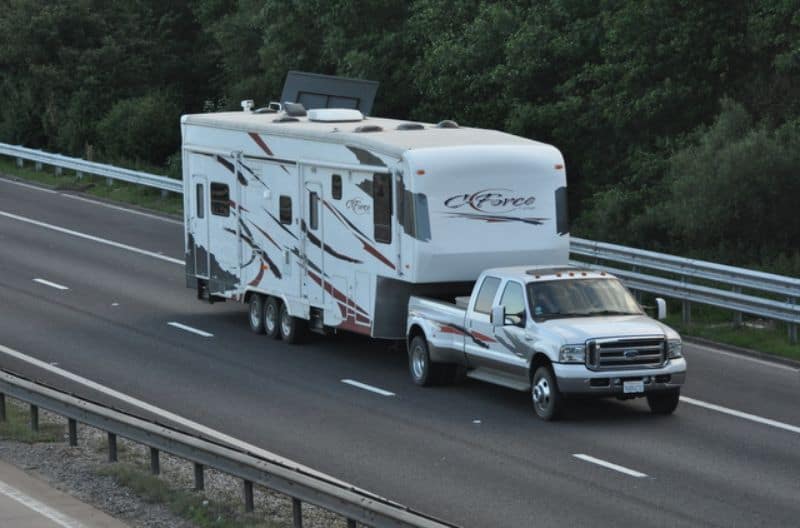Curious why the GVWR of your RV is greater than the GAWR? Concerned that the math seems shadowy? Fear not, because there’s a perfectly reasonable answer.
Federal Law Allows GVWR to Be Higher than GAWR (Sometimes)
Federal law restricts how GVWR should be calculated. Per CFR 49 571.120 and 571.110 in the FMVSS:
S9.1 On motor homes, the sum of the gross axle weight ratings (GAWR) of all axles on the vehicle must not be less than the gross vehicle weight rating (GVWR).
S9.2 On RV trailers, the sum of the GAWRs of all axles on the vehicle plus the vehicle manufacturer’s recommended tongue weight must not be less than the GVWR. If tongue weight is specified as a range, the minimum value must be used.
Did you catch that? For motorhomes, GVWR cannot be greater than the combined weight ratings of the axles! For trailers, however, GVWR can be greater than combined GAWR. What gives?
Hot Hint: Where to Find Your Trailer GVWR
Your RV or trailer GVWR can be found in three places:
- Your MSO or Title
- Your Owner’s Manual
- Your VIN sticker
Or add the Unloaded Vehicle Weight (UVW) to the Cargo Carrying Capacity (CCC) to calculate GVWR.
Why a Trailer’s GVWR Can be Greater than its GAWR – but a Motorhome’s Cannot!


A motorhome’s GVWR can’t be larger than its combined GAWR because there’s no such thing as tongue weight. There’s no towing vehicle to share the weight with. 100% of the weight in a motorhome must be borne by the front and rear axles, so the GVWR cannot be more than the combined GAWR. It’s simple physics: A bridge must be supported at both ends.
But with a trailer, some of the weight is borne by the tongue, not the axles. RV manufacturers like that because they can squeeze extra cargo capacity out of a camper without upsizing the axle. And exercised reasonably, it’s a safe assumption.
However, Uncle Sam will only allow you to use the most conservative estimate. So for travel trailers, we assume 10% tongue weight, and for 5th wheels, we usually assume 15%.
Here’s an example with numbers.
- A travel trailer with two 5,200-lb equalized axles could have a GVWR of 5,200 x 2 / 0.9 = 11,555 lbs.*
- Meanwhile, a 5th wheel with two 5,200-lb equalized axles could have a GVWR of 5,200 x 2 / 0.85 = 12,235 lbs.
Notice how the 5th wheel has a larger GVWR, even though the axles are the same? That’s because the engineer assumes more weight on the 5th wheel is carried by the hitch.
The RV manufacturer is allowed to be more conservative than the law requires. For instance, in this Ask Dave question at RVTravel.com, one reader wondered why his 5er had a GVWR of 12,600 lbs but two axles rated at 6,000 lbs each. Where did the extra 600 lbs come from?
Based on the tongue weight rule, you might think the manufacturer could have estimated 15% on the hitch for a total GVWR of 14,120 lbs. But apparently, the RV manufacturer had limitations: maybe vehicle dynamics, maybe frame design. I don’t know. But I would trust that the manufacturer had a legitimate reason for de-rating the GVWR.
Assumptions Behind the GVWR>GAWR Equation
Be warned: There are a lot of hidden assumptions with the concept that total GVWR equals axle weight plus tongue weight!
- The math assumes you’ll load your tongue properly. But if you don’t load your travel trailer properly, and you have <10% or <15% on the tongue, then you’ll have overloaded your axles by the time you max out your GVWR.
- The math assumes equal side-to-side weight distribution. This one in particular has gotten a lot of motorhome manufacturers in trouble. It is possible, depending on how you load your trailer, that the tires on one side could be overloaded, even if you’re within your GVWR!
Leave a Reply